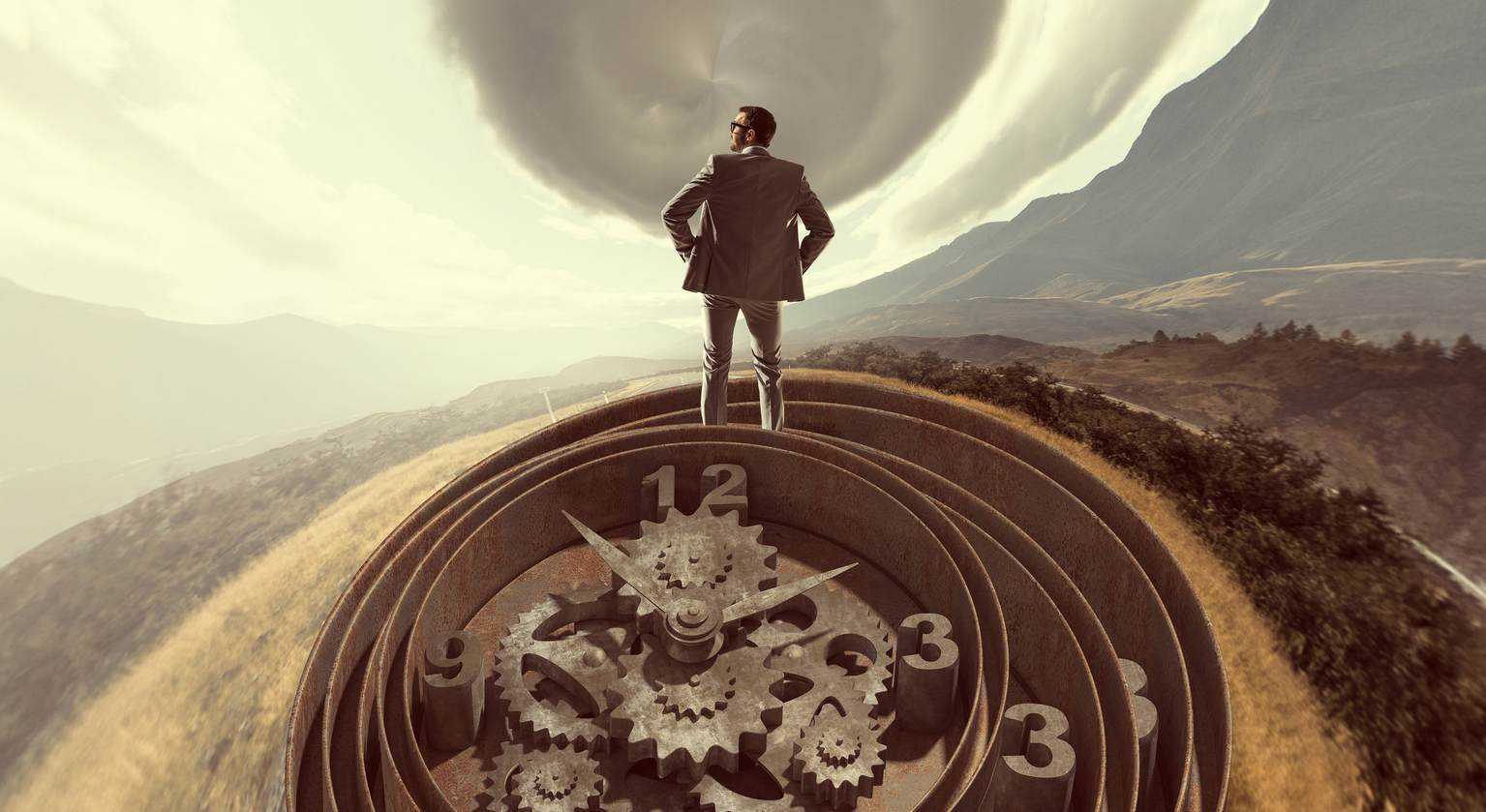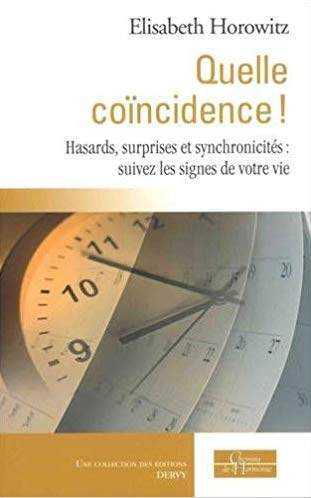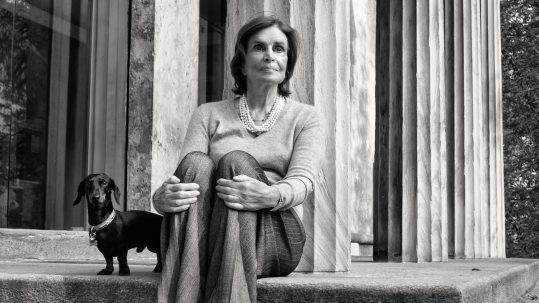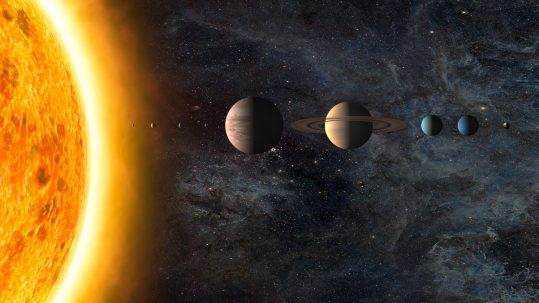
19 Jun ELISABETH HOROWITZ-SYNCHRONICITY (Part 1).
Photo: free of rights.
Elisabeth Horowitz | Synchronicity (Part 1).
We have all had, at some point in life, this sensation of déjà vu, or that little voice telling us not to take a certain path. Elizabeth Horowitz, acclaimed psychogenealogist and author of almost 20 books on numerous fascinating topics, explains to us—in this two-part interview—why coincidences never happen by chance and how to decode the message of the universe to become more aware of the synchronicities around us.
By Victoria Adelaide | June 17. 2019

Victoria Adelaide: Synchronicity is a concept that was initiated by Carl Jung, wasn’t it? Can we have a little history on the topic?
Elisabeth Horowitz: Carl Jung is the most popular as he was the one who found the term ‘synchronicity’ at the end of the ’40s. He used the term for the title of his book on synchronicity, which was published in 1952. However, before him, there was Paul Kammerer, an Austrian scientist, who is well known for his work in biology. From the 1900s, he became interested in micro-coincidences. He noticed number repetition, he observed people in public gardens, the way they dressed, place’s names, and so on. He realized that particular things repeated themselves, like a law of series. So from 1900 to 1919, he kept a journal, cautiously noted his daily observations, and carefully analyzed reality as never done before. In 1919, he released a book in the German language called “Das Gesetz der Serie” (The Law of Series), which was kept confidential. Of course, Freud and Jung read it. Freud was interested in the topic, as he also experienced micro-coincidences in his personal life. Carl Jung did not do the meticulous observation that Kammerer did, but he read his work, which set the foundation of his book on synchronicity. However, the main man and the theoretician of the coincidences—the law of series—was Paul Kammerer.
VA: Also, Jung, Freud, and Kammerer all had a different approach to the topic…
EH: Freud did not have any theories. There were just a few references made on the last pages of his book, The Psychopathology of Everyday Life, released in 1905, as he noticed these coincidences in his life. The two who had a theory were Kammerer and Jung. Kammerer considered that these coincidences are purely objective, which means there are indeed laws in the universe that need to be discovered. Are things repeating themselves? Do things that look alike happen at the same time? While Jung said, “What happens to us, things that we notice, that repeat themselves, isn’t it because our personal unconscious reflects them externally? So it acts a bit like a mirror—this mirror phenomenon that the outside sends back to us according to our psyche.” So, for Kammerer, it was purely objective, but it’s external to us. In contrast, Jung said that a part of these micro-coincidences could be emanating from our psyche—that’s a big difference.
VA: How micro-coincidences manifest?
EH: We suppose there is a force in the universe, where the universe speaks to us. Synchronicity is information that manifests, first, by repetition. For example, you meet a stranger. At first, you won’t notice, but you meet that person a second time, a third time, and a fourth time in the same week. Then you start noticing and wondering. The first way the universe has to speak to us is through repetition. It’s because something happens repetitively that we begin to notice it. The problem is that synchronicity presents suggestions. That’s why we need to be trained to notice them; otherwise, we won’t. Secondly, the likeness. The other day, I was strolling down the street and I met a man who was the lookalike of an old friend of mine. The same evening, I was invited to a party where I met that old friend again. When we see people who look like a friend, a family member, or someone we haven’t seen in a long time, it means that we will hear about these people. There is a phenomenon of anticipation. The likeness of a person we meet, a car that looks like one we may have had, a place that looks similar to where we once lived—the likeness is the vector by which synchronicity will interpolate our consciousness and have us asking questions. That’s a warning that something with some elements of similarity will happen. Synchronicity warns us before an event has happened and enables us to get prepared before an event occurs or to avoid it.
VA: Is the precious teaching of the universe accessible to all of us or only to those who are ready and awake?
EH: Well, I am 57, and when I started paying attention to the reality around me, I was 40. I already had 25 years of work on myself behind me. At 15, I began with astrology, tarot readings, and then later psychogenealogy. I never stopped working on self-development. However, it’s at 40 that I had a realization—this awareness that I needed to pay attention to micro-events and that everything was important. It was a work in progress. When I was young, we didn’t have books on coincidences. Now it’s an emerging topic; there are books so people will integrate the information faster. We must remain open, believe in the magic of existence, and one must have walked a spiritual path to be able to grab it. If you tell materialistic people that you are looking at vehicles’ registration plates or listening to people’s conversation, they are going to laugh at you. All this doesn’t make any sense to them. However, self-development is booming and there are more and more conscious people out there.

VA: You said beings and things that have been connected at some point in life, then separated, keep a form of attachment and tend to be reunited later on. Is that the law of attraction?
EH: Yes, that works for people we have known and, especially, those we loved. We can hear from them in specific circumstances. Some synchronicity will emerge and put us back in touch with these people. For example, if you go to the psychoanalyst and you evoke a person you haven’t talked about in a long time, you may hear from that person. It’s the same when you find a box of photographs at home that you haven’t opened in years, you see some pictures, and the person in one picture calls you or sends you a letter; or you knew someone a long time ago who was from a particular city and, for the first time, you go to this city and that person contacts you, and so on. That’s why Jacques Lacan called it the signifier.
VA: Can you give a brief explanation of what the word ‘signifier’ means?
EH: Signifier is a word that has been used a lot by Lacan. Signifiers are words that are going to be significant to us because they reflect all the familial past. It can be specific names, places where we lived, street names, numbers, names of people who loved us very much or, the opposite, who mistreated us, and so on. All of those are original signifiers that come from our childhood and will have an impact on us. We react to signifiers when they re-emerge. For instance, photographs in the box or talking about someone we haven’t mentioned in years bring up something that relates to us or to the person themselves. It often occurs after latency.
VA: You say that it’s dangerous to delve in the past. Why is that?
EH: In theory, I think it’s delicate to go back in the past. What do we do to go back in the past? If we go back to places where we lived, for example, you lived in a specific location, you leave, you travel, and then come back. For me, it’s not positive, because you come back into something that has already been lived, a place that is memory-charged with lots of information. If it’s punctual, if you do not fix anything, then it’s not too damaging. However, imagine, you come back to your hometown, get married and build a house, it’s terrible. There may be exceptions, but I’ll be inclined to think that going back into the past, to the origins, a return in time, does not seem to me as a good thing. However, some theories say that by modifying something in the present, we can modify the past. For example, you had conflict years ago with someone and it’s not been solved. At some point in your present, you have the opportunity to settle this conflict; you write a letter of apology, you reconsider your attitude, etc. By doing that, you are changing the past. If you do not change it and leave everything as it is, then, in this case, the past is fixed and there is no solution. However, by doing that, all the past is altered and modified because you are now solving something that was set in time. So, you are changing all the consequences of the conflict from the moment it was initiated and what was maintained for years.
VA: Let’s get into retrocausality. Can you explain what it is?
EH: The retrocausality is that you already have, in the present, the backward effects of decisions that are already made for you. For instance, you plan to buy a house; you visit one that you like very much; you speak to the estate agent; you consider signing. You schedule an appointment with the estate agent for two months’ time; you have a deadline, so you decide to go to the notary. By doing that, you’ve created a timeline. It’s done, you’re going to do it; but between the moment you’ve made the decision and the moment when you’ll go to sign at the notary, negative synchronicity will occur. Your car will break down; you will have all kinds of pitfalls and setbacks. At some point, if you are aware, you’ll ask yourself, “Isn’t it the reverse effects of the decision I made?” That is, there are already the effects before the cause. The cause is in the near future, but you are already experiencing its effects. In quantum physics, they’ve already proven that effects can arise before the cause. The cause can be in the future but you are already experiencing its adverse effects in the present. The universe already knows that you should not buy that house; maybe you will share it with a person you won’t get along with, you will have problems with the neighbors, or, in the long run, the house won’t be a good fit for you. The universe will send you all the backward effects. The particles travel from the future to the present to give you information. It’s up to you to take it into account or not.
VA: You wrote: it’s because we have met people in the future that we can dream about them.
EH: We rely on the innovative theories of quantum physics. Quantum physics is the physics of the particles that show that information travels in all directions of time. It can come from the future to the present, and so on. Moreover, as the information does not take into account time the way our consciousness apprehends it, we can very well dream of people we do not know yet but that we will meet in what we think is the future. In fact, Einstein’s block universe theory is a continuum of time. There’s no dissociation between past, present, and future. It’s one block, but our consciousness fragments it. So we are going to be able to dream months or years in advance of things that will happen in what we think is our future, which is only a development of the concept of time in our consciousness, but which, in fact, does not exist, because everything is immediate. Everything is at the same time; there is no fragmentation. So, yes, we will catch certain things that have not occurred yet but that are in the temporal lines, and when they happen we will have a sensation of déjà vu or of already experiencing them.
VA: Let’s talk about dreams of prophetic nature.
EH: Yes. What’s very surprising is that we can dream about events that have not happened yet, but that will occur in the upcoming weeks, months, and sometimes years. We can see it very clearly in our dreams; it’s already there. It confirms what we said before, which is that the split of time into the past, present and future is a categorization of the consciousness. However, it seems that time is a block, as I explained. It’s on the same line I would say. That’s why we can anticipate things—in what we perceive as a long time in advance in our human perception of time—, events that will occur later to us but also to people around us that we know well. The dream is a vast topic in itself because there is much information that can be extracted from our dreams. There’s the psychoanalytic aspect of the dream; the element of anticipation. When you listen to people who have experienced astral trips, who have nightly out-of-body experiences in the astral, they explain that they can enter other people’s dreams.
VA: The dream finally, is our subconscious, which is talking to us.
EH: The dream, on the one hand, is a response to our actions of the day—whether it will criticize them, whether it will try to compensate when we had the wrong attitude. It can also warn us of future events. There’s work on decoding dreams, which is very important. We know that like synchronicity, dreams don’t speak to us directly but through allegory, symbols. That’s why we need to reflect on them to decrypt their meaning. Very often, the dream shows us some aspects of the real on which we haven’t thought about yet or things we have repressed. The suppression of emotions induces that the dream will be much stronger because it will counterbalance the poverty of conscious life during the day or what has been repressed. This phenomenon of compensation is very strong with people who do not pay attention to synchronicity. They have no awareness at all. That’s when the dream tries to catch their attention.
VA: Considering that everything creates itself out of emptiness, you said that throwing away a desire in the quantum vacuum then waiting to see what will happen may bring more possibilities than consciously orienting the course of our life according to our desires. Can you elaborate, please? (smiles)
EH: Indeed, if we think “I want that” or that we have a goal, this kind of mindset is very much consumer society. So we send all our intentions in the universe, but we don’t know if it’s not a little reductive compared to what could happen if we don’t. If we let go and say, “I don’t set any personal goals for myself, I wait for something to happen,” at some point, something will emerge from this emptiness.
VA: So, as Jung said, all the information we receive from the universe may just be the feedback of all that we are, all that we have generated and put out?
EH: Of course. It’s in keeping with the personal work and then it creates a discharge. That discharge enables us to accept emptiness, to accept a purposeless life, that everything creates itself step by step without initiating it. The questions are, “What emerges from emptiness?” “Are we able to handle emptiness?” Also, “If I don’t do anything, what creates itself?”
VA: I guess it’s about dropping the ego. In the end, who could survive emptiness without losing the ego?
EH: That’s very difficult.
VA: Yes, emptiness gives us the possibility to finally see ourselves for what we are, without all this persona the ego has created.
EH: Absolutely. We find ourselves in the situation we have always feared. Who are we without any desire to fulfill ourselves? It can be the hardest reality to face. Many are unable to handle it and can fall in deep desperation.
You can read the second part of this interview here.
...We must remain open, believe in the magic of existence...``





